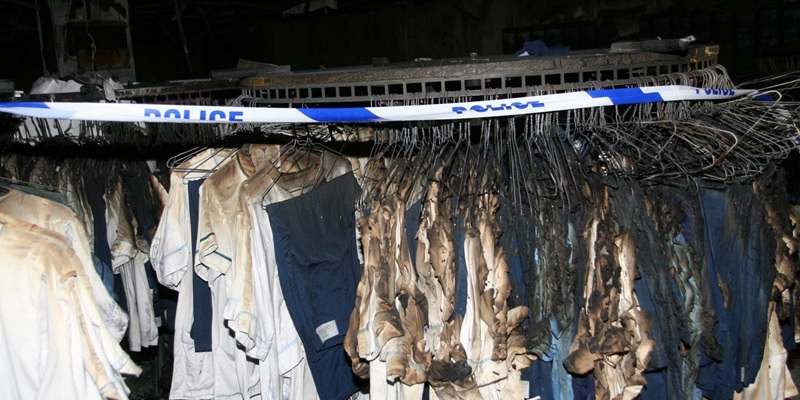All nursing staff at Ninewells Hospital could be asked to wash their uniforms at home despite staff fears over hygiene.
A member of staff claimed the move will be less hygienic, cause more infections and be more expensive for staff as they will have to foot the bill for extra laundry at high temperatures in their own homes.
A fire in the nurses’ changing rooms on the fifth floor of Ninewells Hospital caused extensive damage in September last year. Around 12,000 uniforms were destroyed in the blaze and because NHS Tayside had not insured the area, it cost the health board £1 million to repair the damage.
However, the health board did not replace the carousel that transported uniforms to and from the hospital laundry and NHS Tayside is now considering asking all staff to take responsibility for washing their own uniforms. The UK is the only country in Europe that allows hospital staff to launder their uniforms at home.
One member of staff, who asked not to be named, said: ”They are discussing making staff take their uniforms home to wash them but there must be a real risk of infection. It’s not just diseases people will end up having to drive home with a bag of clothes that are covered in vomit and then wash them at home.”
The new rules will mean that although bed sheets will have to be washed to certain hygiene standards, the same rules will not apply to the uniforms worn by nurses.
The staff member added: ”That is going to cost them a lot more. They say that people who wash their uniforms at home will be able to claim tax back but that seems complicated.”
NHS Tayside director of operations Ken Armstrong said the majority of staff already have to clean their own uniforms.
He said: ”In line with other health boards across Scotland, NHS Tayside is currently considering moving to a system of home laundering for all staff uniforms.
”Currently, more than 90% of staff in NHS Scotland launder their uniforms at home and, in Tayside, 75% of staff actually already take their uniforms home to wash.
”We understand that any decision to move to home laundering would be a significant change for the 25% of staff who have their uniforms cleaned at the main laundry in Ninewells and, therefore, a project team has been established to look at the issue.
”The team includes representation from infection control, the nursing directorate, workforce and staff side representatives.”
A spokeswoman for NHS Fife said that although staff are allowed to wash their uniforms at home, there are NHS laundry facilities they can use.
She said: ”Nursing staff do have an option to have their uniforms laundered but can choose to wash them at home.”
A report by the Textile Services Association published in June warned that washing uniforms at home could lead to nurses carrying potentially harmful infections into their home from hospital or vice versa.
Chief executive Murray Simpson said: ”Our research shows domestic machines do not reach a high enough, nor maintain the degree of, temperature necessary to remove bacteria picked up during a nurse’s working day.”
The TSA report claims that hygiene standards in hospital kitchens or a dog food manufacturer are higher than those required for washing a nurse’s uniform at home.
NHS Scotland guidance issued last year said all uniforms worn in theatre, or that are contaminated, must be washed in NHS laundry facilities.
The guidance added that if the uniform has not been contaminated with blood or other fluids there is no evidence of any hygiene risk caused by washing the outfit at home.
